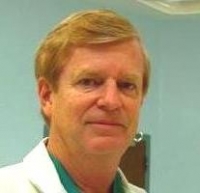Patients speak about prostate cancer and laparoscopic radical prostatectomy

Nils Schoultz, MD, Tampa, Florida
I am a urologist. This is my own prostate cancer story.
At 57 years of age, like so many of my patients, I was sure that I was in great health. Then my PSA rose to 4.2 ng/ml, and a prostate biopsy confirmed prostate cancer. By this point, I had had more than 20 years experience diagnosing, staging, and treating prostate cancer, chronic prostatitis, and other prostate disease. But this prostate cancer story was different, because this time I was the patient.
My patients are often overwhelmed by information on prostate cancer treatments, the very information I now faced. I didn't need my partners in our busy Tampa practice to instruct me. I had done hundreds of prostate cancer treatments of all kinds, had seen my patients go to other centers and return, and knew the drill and the players very well.
As it happens, one of my colleagues, an orthopedic surgeon, had recently had a laparoscopic radical prostatectomy with Dr. Krongrad. By great coincidence, shortly before my prostate biopsy, my colleague described to me his experience: quick prostate surgery, minimal blood loss, absence of pain, quick discharge from the hospital, and all the support and service a patient could ask for. Having seen my patients get the run-around at other institutions, sometimes as if parts on an assembly line, I had determined to find something different for me. My colleague's story suggested the direction and I began to research in greater detail.
My wife and I drove to Miami to talk about LRP with Dr. Krongrad, a fellow urologist who I had not previously met. Dr. Krongrad has a long history of working with prostate cancer patients and had made scholarly contributions regarding various prostate cancer treatments. Most importantly, Dr. Krongrad has a radical prostatectomy volume that ranks as one of the highest in the world. This was a pivotal point for me, since surgeon experience with radical prostatectomy is a profound determinant of patient outcome.
My consultation with Dr. Krongrad revealed confidence, clarity, and a sharp intellect. His comments were finely nuanced, reflecting theoretical knowledge coupled with vast bedside experience. The appointment was efficient and the opinions I heard met my expectations. Everything indicated a no-nonsense, hands-on dedication to surgery and doctoring. Frankly, I don't think anyone in our business has better credentials or a more suitable approach.
As I moved forward with scheduling and other administrative tasks, I was aided by Ruth and Hope, the LRP program coordinators. Ruth and Hope, not an automated attendant, answered the phone and always knew who I was and how my file was progressing. There's something about that sort of intimacy and responsiveness that helps to dispel residual preoperative anxiety, which I fully appreciated.
I had surgery ten days ago. Before I knew it, I was awake in recovery room. I had lost no blood to speak of; my blood count after the LRP was 46 percent, which is probably higher than what most men walk around with before surgery. Not surprisingly, I had good energy right away. That, plus the fact that I had no pain, meant that I was running around the nurses' station a few hours after surgery.
My experience at Aventura Hospital, a full service hospital with 800 physicians and one of the newest physical plants in the US, was beyond what anyone reasonably could have expected. The building was spotless and my single room on the 9th floor was warm and clean and had a window from which I could see trees, the sky, and, in the distance, the blue-green water of the Atlantic. As for the nurses, there were cordial, responsive, informed, and just plain competent.
I left the hospital the morning after surgery, not having taken anything for pain; I did take a single Tylenol later. My wife and I then drove from Miami to Tampa. My wife did the driving and I just relaxed in my unaccustomed role as the backseat driver. On the way, Dr. Krongrad called to inform me that, as we both expected, the cancer was organ confined and the surgical margins were clear. I understood that Thanksgiving that Thursday would have special meaning.
Since surgery, my urine has been clear and my mood and comfort have been excellent. Early this morning, with Dr. Krongrad's approval, I removed my catheter. I've voided a number of times now without any difficulty and haven't had any incontinence. As I sit and type this, I keep thinking I should put some padding in my pants, but haven't had to!
I was an ideal surgical candidate and could have chosen several of the available prostate cancer treatments. I would have gone to any urologist for my radical prostatectomy. In the end, when it came to my prostate cancer treatment, I chose LRP and I chose our country's pioneering program, a highly specialized and very personal program in Miami.
All my training, research, and personal experience as a patient have led me to an overwhelming conclusion: there is no more experienced, efficient, and supportive way to have a radical prostatectomy than the LRP that I chose for myself. Everything - from initial consultation, to the hospital experience, to the recovery, to the pathology report, to the interactions with the office and hospital staff - illustrates how high are the surgical and professional standards that ability, experience, commitment, and planning can deliver.
This is what I know. This is what I will tell my patients.


